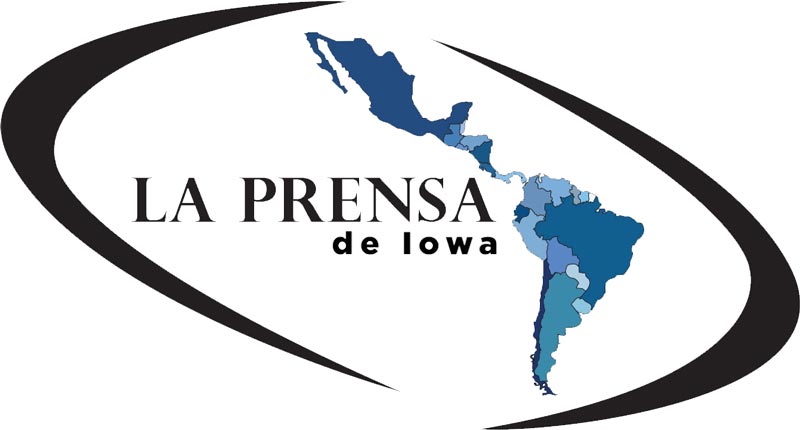Cambios de mejoría para poblaciones vulnerables
/⇣ English translation provided at the end ⇣
1. ¿Qué es la ley de VAWA, por qué se creó?
La Ley VAWA se creó para inmigrantes que lamentablemente han sido víctimas de abusos por parte de familiares inmediatos que son ciudadanos estadounidenses o residentes permanentes
2. ¿Cuáles son los requisitos?
Para calificar para VAWA la victima tiene que estar o haber estado casado(a) con el abusador o abusadora y este a su vez tiene que ser residente permanente o ciudadano americano.
Para un niño abusado por su padre, madre, el padre/madre tiene que ser residente permanente o ciudadano(a). Para un padre que es abusado por su hijo, el hijo tiene que ser mayor de 21 años y ciudadano estadounidense para que califique.
Además, las victimas tendrán que demostrar que:
Fueron víctimas de abuso domestico durante el tiempo que residieron juntos y en caso de matrimonios,
- que se casaron en buena fe.
- Finalmente, es necesario demostrar que la solicitante es una persona de buen carácter moral.
3. ¿Cuáles son los beneficios? ¿Se enterará mi abusador?
Esta petición está protegida bajo las leyes de confidencialidad. Se dirige a un departamento de inmigración que solo trabaja con víctimas de violencia familiar y los abusadores no tienen acceso a la información, aunque investiguen o pregunten.
Así mismo, si la petición es aprobada la persona solicitante tendrá un permiso de trabajo renovable y eventualmente podrá también solicitar la residencia permanente auto patrocinándose. Es decir, no necesita de la ayuda de nadie para obtener su residencia.
4. Recientemente hemos tenido cambios favorables, ¿cuáles son los cambios?
El Servicio de Ciudadanía e Inmigración de Estados Unidos publicó las guías en el Manual de Políticas de USCIS sobre los requisitos de elegibilidad, para actualizar las prácticas existentes y alinear las políticas de USCIS con las decisiones judiciales recientes. Se actualizo:
1) La interpretación del requisito de que la residencia compartida
a. Antes, se tenía que demostrar que la violencia ocurrió durante la residencia conjunta después de casados, ahora no importa si fue antes o durante.
b. Solo habrá que demostrar que en algún momento durante su relación existió violencia familiar.
2) También, implementando decisiones claves en el caso Da Silva vs. Fiscal General, 948 F.3d 629 (3er Cir. 2020), y Arguijo vs. Estados Unidos, 991 F.3d 736 (7mo Cir. 2021), se sostiene que al evaluar el requisito de buen carácter moral, si un acto o condena está «asociado» con la violencia o maltrato extremo cuando tiene «una relación causal o lógica» se puede encontrar que si cumplen el requisito de buen carácter moral.
3) Finalmente, a partir del fallo judicial en el caso de Arguijo vs. USCIS se permite que los hijastros(as) y padrastros/madrastas continúen siendo elegibles para las auto peticiones VAWA aunque el padre/madre o padrastro/madrastra se divorcien.
Estatus de Protección a Inmigrantes Juveniles (SIJS)
¿Qué es SIJS?
Es una forma de alivio migratorio disponible para niños indocumentados que viven en los Estados Unidos y que han sido abandonados, abusados o desatendidos por al menos uno de sus padres y cumplen muchos otros requisitos de elegibilidad.
¿Quién califica?
Primero tendremos que dirigirnos con un juez de derecho de la familia para que establezca una tutela legal de un adulto en la vida del joven y hacia el joven por motivos de abandono o abuso o desatención. Una vez que el juez emite una orden de tutela legal, nos podemos dirigir con el servicio de inmigración a solicitar un estatus de protección de inmigración para el joven. Cuando la petición es aprobada tenemos que esperar varios años en este momento a que su fechar de prioridad este al día o vigente para poder solicitar la residencia
¿Cuáles son los cambios?
El Servicio de Ciudadanía e Inmigración de Estados Unidos anunció que considera otorgar acción diferida y permiso de trabajo a los menores que esperan tarjetas verdes mediante su Estatus Especial de Inmigrante Juvenil pero que no pueden obtener una visa debido a las demoras existentes.
La medida beneficia a muchos jóvenes
En una regla final separada publicada recientemente, USCIS también introdujo una serie de cambios de política en el programa SIJS, incluida la implementación de cambios estatutarios realizados en el programa en años anteriores.
La regla final actualiza las regulaciones actuales para aclarar los criterios de de SIJS, incluida una disposición de límite de edad que protege a los peticionarios que cumplen 21 años mientras su solicitud está pendiente. También actualiza los requisitos probatorios que se utilizan para otorgar el estatus de SIJS para “mejorar la eficiencia y eficacia del programa”.
La regla también aclara que no se puede exigir a los peticionarios que se comuniquen con su presunto abusador mientras USCIS toma una decisión en su caso.
Más de 44,000 niños inmigrantes de El Salvador, Guatemala, Honduras y México están esperando en un atraso de años para recibir tarjetas de residencia bajo el programa SIJS, según un informe de diciembre publicado por una coalición de grupos de defensa. Este cambio de política ofrece un alivio temporal mientras que se aprueban sus residencias permanentes.
La nueva política entrará en efecto a partir del 6 de mayo de 2022.
Translation
Changes for improvement for vulnerable populations
1. What is the VAWA law, why was it created?
The VAWA Act was created for immigrants who have unfortunately been victims of abuse by immediate family members who are US citizens or permanent residents
2. What are the requirements?
To qualify for VAWA, the victim must be or have been married to the abuser and the abuser must be a permanent resident or US citizen.
For a child abused by her father, her mother, the father/mother must be a permanent resident or citizen. For a father who is abused by her son, the son has to be over 21 and a US citizen to qualify.
In addition, victims will have to show that:
They were victims of domestic abuse during the time they resided together and in the case of marriages,
- that they were married in good faith.
- Finally, it is necessary to demonstrate that the applicant is a person of good moral character.
3. What are the benefits? Will my abuser find out?
This request is protected under confidentiality laws. He goes to an immigration department that only works with victims of family violence and the abusers do not have access to the information, even if they investigate or ask.
Likewise, if the petition is approved, the applicant will have a renewable work permit and may also eventually apply for permanent residence by self-sponsoring. That is, she does not need anyone's help to obtain her residence.
4. We have recently had favorable changes, what are the changes?
The United States Citizenship and Immigration Services published guidance in the USCIS Policy Manual on eligibility requirements to update existing practices and align USCIS policies with recent court decisions. It has updated:
1) The interpretation of the requirement that shared residence
to. Before, it had to be shown that the violence occurred during the joint residence after marriage, now it does not matter if it was before or during.
b. You just have to prove that at some point during your relationship there was family violence.
2) Also, implementing key decisions in the Da Silva vs. Attorney General, 948 F.3d 629 (3rd Cir. 2020), and Arguijo vs. United States, 991 F.3d 736 (7th Cir. 2021), holding that in assessing the good moral character requirement, if an act or conviction is "associated" with extreme violence or abuse when it has "a causal or logical relationship » can be found if they meet the good moral character requirement.
3) Finally, based on the judicial ruling in the case of Arguijo vs. USCIS allows stepchildren and stepparents to continue to be eligible for VAWA self-petitions even if the parent or stepparent divorces.
Protection Immigrant Juvenile Status (SIJS)
What is SIJS?
It is a form of immigration relief available to undocumented children living in the United States who have been abandoned, abused, or neglected by at least one parent and meet many other eligibility requirements.
Who qualifies?
First we will have to go to a family law judge to establish legal guardianship of an adult in the life of the young person and towards the young person for reasons of abandonment or abuse or neglect. Once the judge issues a legal guardianship order, we can go to the immigration service to apply for protected immigration status for the young person. When the petition is approved we have to wait several years at this time for your priority date to be up to date or in force to be able to apply for residency
What are the changes?
The United States Citizenship and Immigration Services announced that it is considering granting deferred action and work authorization to minors who are waiting for green cards through their Special Immigrant Juvenile Status but who are unable to obtain a visa due to existing delays.
The measure benefits many young people
In a recently published separate final rule, USCIS also introduced a number of policy changes to the SIJS program, including implementing statutory changes made to the program in previous years.
The final rule updates current regulations to clarify SIJS eligibility criteria, including an age limit provision that protects petitioners who turn 21 while their application is pending. It also updates the evidentiary requirements used to grant SIJS status to "improve the efficiency and effectiveness of the program."
The rule also clarifies that petitioners cannot be required to communicate with their alleged abuser while USCIS makes a decision in their case.
More than 44,000 immigrant children from El Salvador, Guatemala, Honduras and Mexico are waiting years backlog to receive green cards under the SIJS program, according to a December report released by a coalition of advocacy groups. This policy change offers temporary relief while their permanent residences are approved.
The new policy will take effect from May 6, 2022.






































